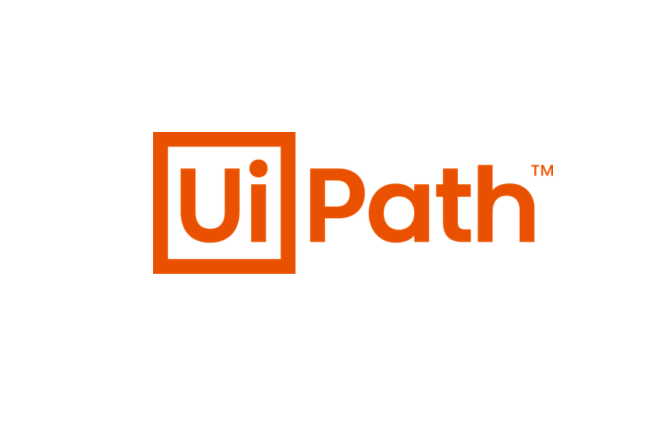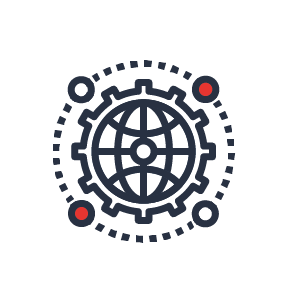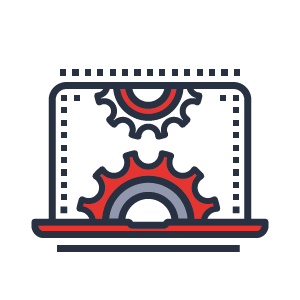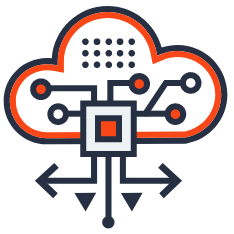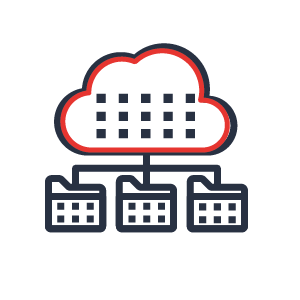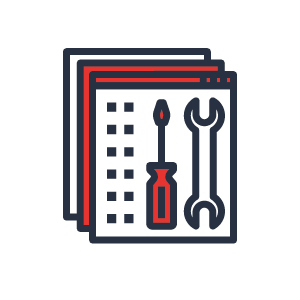
The insurance industry, once characterised by vast amounts of paperwork, manual processes, and long processing times, is undergoing a transformation. With the advent of technology and the need for streamlined processes, automation is increasingly becoming the cornerstone of insurance operations.
Introduction
The insurance industry has long been the pillar of personal and business risk mitigation, offering peace of mind in the midst of life’s unpredictabilities. However, for decades, it remained relatively untouched by technological advancements, relying heavily on manual processes and traditional customer service protocols. Customers were accustomed to paper-heavy applications, long wait times, and human-driven decisions. But the winds of change have been blowing.
As we journey further into the 21st century, we find ourselves at the cusp of a digital revolution, where automation is not merely a buzzword but a necessity for industries aiming to remain relevant. Amidst this technological renaissance, the insurance sector too is experiencing a paradigm shift. Automation, driven by advancements in artificial intelligence, machine learning, and big data analytics, is reshaping the way insurance companies operate, enhancing their efficiency and transforming the customer experience.
While the transformation brings promise, it also comes with its own set of challenges and nuances. This article aims to provide a comprehensive view of this ongoing evolution, delving deep into the catalysts of change, the immense benefits it offers, potential roadblocks, and the bright future that automation paints for the insurance industry.
This article delves into the impact of automation on the insurance industry, its benefits, and the future it promises.
What is Automation in Insurance?
Automation in the insurance sector refers to the use of technology to streamline, optimise, and enhance various operational processes. It encompasses:
- Robotic Process Automation (RPA) for repetitive tasks
- AI-driven chatbots for customer service
- Predictive analytics for risk assessment
- Digital underwriting
- Claims processing using AI and machine learning
Benefits of Automation in Insurance
The integration of automation into the insurance landscape is not just a technological upgrade; it’s a holistic approach to redefining operational excellence and customer engagement. Here’s a deeper dive into the multifaceted benefits it offers:
- Enhanced Customer Experience: In an era where customers demand instant gratification and personalisation, automation proves invaluable. Quicker response times, reduced errors, and bespoke services become the norm. Chatbots, for instance, can provide 24/7 support, answering queries in real-time, while automated underwriting ensures policies are issued faster, matching the pace of our digital lives.
- Operational Efficiency: Manual processes, traditionally bogged down by paperwork and bureaucratic delays, are prone to errors and can be incredibly time-consuming. Automation, on the other hand, streamlines these processes, minimising manual touchpoints and reducing the chances of human error. This not only speeds up operations but also significantly reduces associated costs, offering a double-edged advantage of enhanced speed and reduced expenses.
- Data-Driven Decisions: The insurance industry is intrinsically tied to data. Automation, coupled with big data analytics, transforms this data into actionable insights. This empowers insurance providers to make more informed decisions, whether it’s in fine-tuning pricing models, identifying potential fraud, or predicting market trends. In essence, it replaces gut-feeling decisions with quantifiable, evidence-based choices.
- Scalability: As businesses grow, the challenges of scaling processes, handling increased customer queries, and managing larger datasets can be daunting. Automation offers a solution, allowing companies to handle increased volumes with ease. With the right automated systems in place, insurers can scale their operations without a direct proportional increase in manpower or overhead costs.
- Consistency and Compliance: In an industry where regulations are stringent and ever-evolving, maintaining consistent processes and ensuring compliance is crucial. Automated workflows guarantee that processes are uniform across the board, minimising the risks of non-compliance and ensuring that industry standards are consistently met.
- Innovative Product Development: With automation handling routine tasks, insurance professionals can dedicate more time to innovation. This leads to the development of more tailored insurance products, catering to niche markets or addressing unique customer needs, thereby providing a competitive edge in the market.
Automation in the insurance industry is not merely a facilitator; it’s a game-changer. It optimises processes, drives customer satisfaction, and, importantly, enables the industry to evolve in line with modern expectations and technological advancements.
Implementing Automation
The theory of automation and its benefits sounds compelling, but it’s the real-world applications and success stories that truly illuminate its transformative power. Here are some more detailed examples of how insurance companies around the globe are integrating automation into their operations:
- Claims Processing Automation: One of the most talked-about applications comes from Lemonade, a tech-forward insurance start-up. They made headlines when their AI-driven system adjudicated and paid out a claim in a mere three seconds. This not only reduces administrative overhead but also greatly enhances customer satisfaction by drastically reducing waiting times.
- Customer Interaction Automation: Progressive, a household name in insurance, introduced “Flo Chatbot.” This AI-driven chatbot provides instant answers to customer queries, driving better engagement and freeing up human agents to tackle more complex tasks. The continuous availability of such chatbots ensures customers receive assistance at any time, be it day or night.
- Risk Assessment Automation: In the intricate world of underwriting, accurate risk assessment is paramount. Companies are now employing AI-driven models that can analyse vast datasets, including social media activity, to better predict risks. This granular approach helps insurers price policies more accurately, ensuring fair premiums for customers while safeguarding their bottom line.
- Automated Policy Issuance: Traditionally, issuing a policy involved multiple steps and manual verification. Now, with automation, companies like Metromile offer pay-per-mile insurance, where policies are issued instantly online, with rates based on real-time driving data. This not only speeds up the issuance process but also provides a more personalised insurance product.
- Automated Fraud Detection: Automation, combined with machine learning algorithms, is revolutionising the way insurance companies detect and prevent fraudulent claims. For instance, companies like Shift Technology provide AI-driven solutions that analyse vast amounts of claims data, flagging anomalies and potential fraud patterns that might be missed by human eyes.
- Administrative Task Automation: Robotic Process Automation (RPA) has been adopted by giants like Allianz. RPA bots can handle repetitive tasks such as data entry, policy renewals, and basic customer queries. This not only ensures faster processing times but also reduces the margin of error typically associated with manual data handling.
These real-world applications underscore the profound impact automation is having on the insurance industry. By leveraging the capabilities of AI, machine learning, and RPA, insurance providers are redefining their operational models and setting new benchmarks in customer service and efficiency.
The Future of Automation in Insurance
As we stand on the brink of what many are calling the Fourth Industrial Revolution, it’s evident that the amalgamation of technology and automation will drive the future, with the insurance sector being no exception. Here’s a glimpse into what the future might hold for automation in insurance:
- Smart Contracts and Blockchain: The decentralised nature of blockchain technology promises to redefine the way policies are issued and claims are managed. Smart contracts, self-executing contracts with the agreement directly written into code, can automate and validate the terms of a contract without intermediaries. This ensures transparency, reduces fraud, and speeds up processes such as claim settlements.
- IoT Devices: The Internet of Things (IoT) is set to play a pivotal role in the insurance sector. Smart home systems, wearable health devices, and connected vehicles can provide real-time data to insurers. This continuous stream of data can allow for dynamic policy pricing, real-time risk assessment, and even proactive policy suggestions. For example, a health insurance policy could be dynamically priced based on real-time health metrics from a user’s wearable device.
- Enhanced AI Capabilities: The AI of tomorrow promises to be more intuitive, predictive, and adaptive. As AI models become more sophisticated, they will be better equipped to handle tasks like underwriting and claims processing, making real-time decisions based on vast data inputs. Moreover, AI will facilitate hyper-personalised insurance products tailored to individual needs, lifestyles, and preferences.
- Virtual Reality (VR) and Augmented Reality (AR) in Claims Processing: The future might see adjusters using AR glasses to assess damage remotely or customers using VR to simulate scenarios for better insurance product understanding. These technologies can bring about more accurate damage assessments and foster a deeper understanding of insurance products.
- Predictive Analytics: Beyond just data analysis, the future lies in predictive analytics where insurers can proactively gauge future risks, anticipate market changes, and even predict customer behaviour. This could revolutionise product development, marketing strategies, and customer retention tactics.
- Self-Service Platforms: As customers become more tech-savvy, there will be a shift towards self-service platforms where policyholders can make changes to their policies, file claims, and even resolve queries using AI-driven interfaces, all without human intervention.
- Sustainability and Ethical Insurance: Automation will also aid in the development of insurance products focused on sustainability. By analysing vast datasets, insurers can create products that incentivise sustainable behaviours, be it for businesses adopting green technologies or individuals leading eco-friendly lifestyles.
As we envision this future, it’s clear that automation will be the bedrock upon which the next era of the insurance industry will be built. It promises a future of precision, efficiency, personalisation, and above all, an enhanced user experience that aligns with the digital age’s demands.
Embrace the Change
The wave of automation in the insurance industry is inevitable, offering opportunities for enhanced efficiency, improved customer experience, and data-driven insights. While challenges exist, they are surmountable with the right strategies in place.
If you’re in the insurance sector, now is the time to embrace automation. Assess your current processes, identify areas ripe for automation, and begin your journey towards a digital, efficient, and customer-centric future. The benefits far outweigh the challenges. The future is automated, and those who adapt will thrive in the new digital era.
Contact Velocity IT today and let us help you unlock the untapped potential of automation for your insurance business.
Do you need Automation in your Insurance Business?
Contact Velocity IT’s experts today to kickstart your insurance automation journey today.

